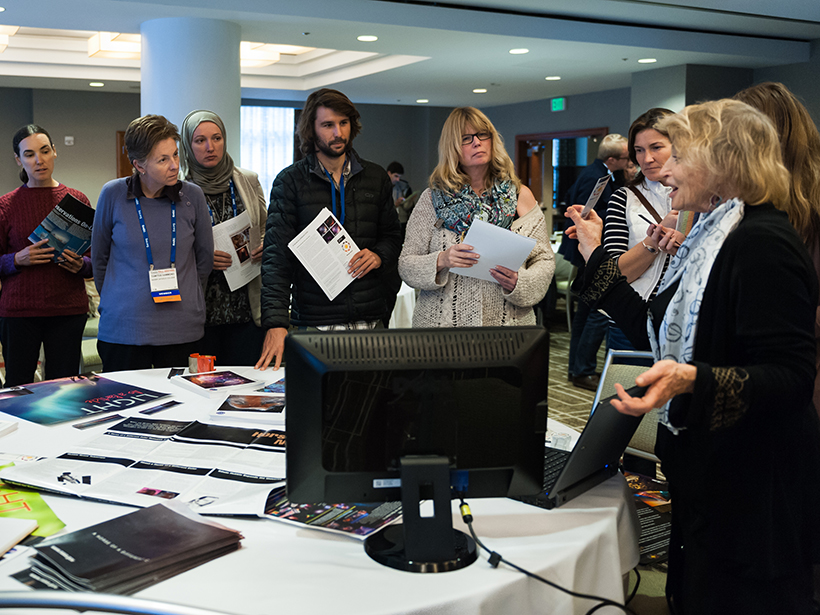
Today I’m incredibly pleased to announce that AGU is launching a new section: the Education section. AGU’s sections reflect the scientific breadth of the Union and are responsible for fostering scientific discussion and collaboration, identifying emerging issues, providing member input, and nominating scientists for honors and recognition. The Education section marks the second new section launched by AGU in the past year; the Geohealth section was launched in December 2017.
Bringing a Diverse Community TogetherAfter supporting an Education Special Interest Group for a number of years and seeing a significant increase in the number of education-related abstracts and sessions at the Fall Meeting, AGU realized that the community’s needs had evolved and grown and that it was time to create a formal Education section.
The Education section was established to provide a transdisciplinary home and voice for educators and education researchers, enhancing connectivity across all of the Earth and space sciences by providing educational expertise, scholarship, and partnership development with other organizations and the public. It will catalyze and shape Earth and space science education activities to develop a diverse Earth and space science talent pool, improve global scientific literacy, and increase access to scholarship and collaboration in Earth and space education research and practice.
The education sessions that have occurred at AGU’s Fall Meetings for a number of years now will continue and will be managed by the section.
Making an Impact
In addition, an important and unique contribution that the Education section will make is in shaping the knowledge and skills of future generations of students, educators, and the public, grounded in the emerging field of geoscience education research. Education research is a rigorous science addressing critical issues of learning, communication, diversity, equity, inclusion, and the research enterprise. The discipline of geoscience education research (GER), which focuses on forming and testing geoscience education research hypotheses, as well as the development, application, and evaluation of new geoscience teaching innovations and curricula, is also emerging.
Advancing Earth and Space Science
AGU strives to lead in myriad ways, including pioneering new approaches to growing the exchange of scientific knowledge, encouraging the emergence of new and transdisciplinary fields of study, transforming our programs and operations as we anticipate the changing needs of our worldwide community, helping scientists improve their work, and strengthening the integrity of science. Specifically, by supporting people preparing for or engaged in any stage of Earth and space science and related careers, AGU strengthens the global Earth and space science community and enlarges its impact on society.
Next Steps
The AGU Leadership Development/Governance Committee is in the process of selecting founding leaders for the Education section and working on the transition to elected leadership in the next year. When joining AGU or renewing their 2019 membership, AGU members can now select Education as their primary or secondary section. We hope you will join the Education section and volunteer for the unique opportunity to provide input and help shape the future of the discipline.
—Chris McEntee (email: [email protected]), Executive Director/CEO, AGU




